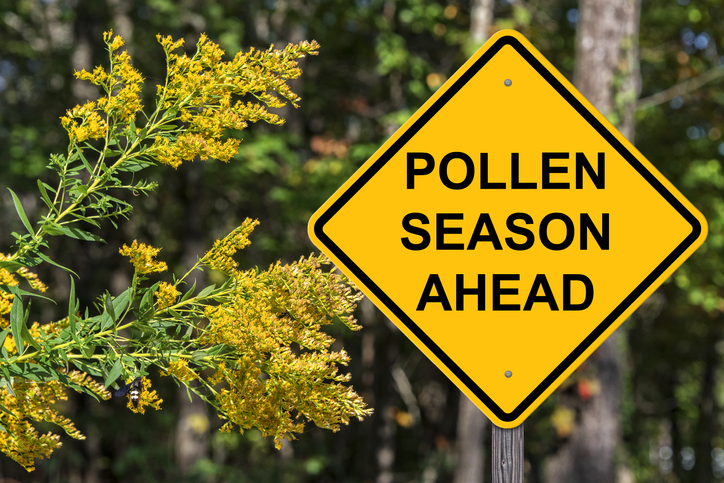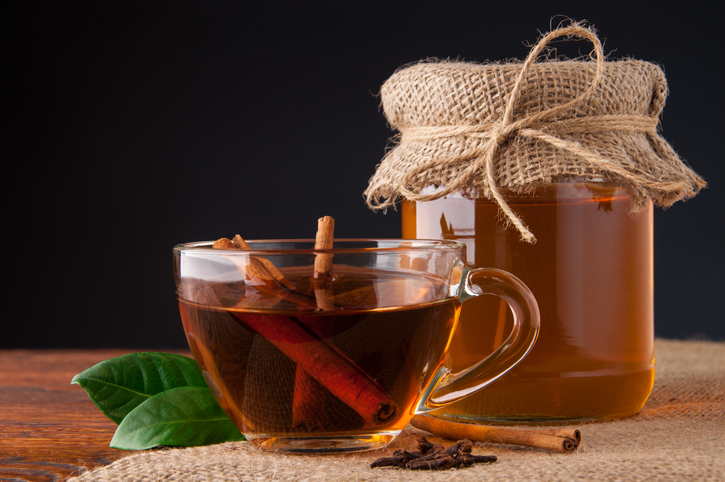Do Tea Drinking Habits Help Allergies?

The onset of allergy season means an onslaught of sniffly noses, headaches, and itchy eyes. Fighting back against allergy symptoms can be exhausting. Fortunately, establishing healthy habits can do a lot to protect our bodies against seasonal allergies. Recent studies suggest that drinking tea regularly helps individuals build up a steady defense against pesky allergens. A single hot cup of tea, while soothing, isn’t going to immediately wipe out all of your allergy symptoms at once — but the evidence suggests that drinking tea daily significantly reduces those symptoms. Many teas supply antioxidants and serve as natural anti-inflammatories, which helps ease congestion and revitalizes the body. Looking for relief from your allergy-related woes this season? Read below to find a list of teas that provide you with some extra support:
Green Tea
Green tea is well-known to benefit our body’s overall health. From controlling the appetite to refreshing the mind, green tea has a number of uses. When it comes to allergies, green tea has antioxidants that provide a sturdy defense against several major seasonal symptoms. Epigallocatechin gallate (EGCG) is an antioxidant that provides benefits to overall health and helps prevent nausea and headaches. EGCG is found in abundance in Green Tea. In fact, you will receive more EGCG from a cup of green tea than you would EGCG tablets or powder. This is because drinking tea is one of the best ways to absorb antioxidants into your system.
Ginger Tea
Ginger-based teas soothe the sinuses, making them a great go-to drink on days that you’re congested and battling the sniffles. Ginger has the properties of an antihistamine, which means it is especially good at suppressing inflammatory reactions. Most allergies are caused by inflammation around the eyes and within the lining of the nose. If you’re looking for tea to give you relief from day-to-day symptoms, ginger tea is the choice for you. Just the smell of ginger tea is known to leave people feeling a little less stuffed-up.
Nettle
Nettle is a known anti-inflammatory and can prevent some symptoms of hay fever. Early research on the effects of nettle suggests that it treats and prevents symptoms such as congestion, sneezing, and itching. Known health benefits of nettle are its ability to lower blood pressure and its ability to be used as a natural diuretic. Nettle tea has a lot of health benefits, and it may be a good choice to add to your allergy-fighting arsenal.
Peppermint
Peppermint tea is known to treat symptoms such as headaches, digestion problems, and sniffles. Peppermint tea contains a substance called rosmarinic acid, which is commonly found in plants in the mint family. Established studies conducted in Japan showed that those who consumed rosmarinic acid experienced less sniffling and less itchiness around the nose and eyes. Rosmarinic acid was declared by this study an effective defense against seasonal allergies. Peppermint tea is one of the best sources of rosmarinic acid, so it’s a great idea to drink it regularly to build up a defense against allergy symptoms.
Rooibos
Like ginger tea, rooibos tea is a natural antihistamine. It suppresses inflammatory symptoms like congested noses and pressure headaches around the eyes. Rooibos works a little differently than ginger tea because the histamine blockers come from a bioflavonoid called quercetin. If you don’t have any luck combating seasonal allergy symptoms with ginger tea, it’s a good idea to give rooibos a try (and vice versa)! In addition to being rich in antioxidants and being a known stress-reducer, rooibos is delicious and caffeine free. It also takes flavors well. Rooibos Cream Caramel tea and Peachy Green Rooibos give you all the medicinal benefits of rooibos tea but offer you a fun, desserty taste.
Tea with Honey
While there isn’t a lot of research yet that backs up the claim, there is an established belief among honey enthusiasts that consuming honey (especially local honey) protects you against seasonal allergies. The idea is that allergies are linked to pollen, and by consuming honey, you are consuming a product of pollen and building up resistance to it. Whether this claim is true or not, it never hurts to sweeten up your tea with a little bit of North Carolina honey. Not only will it add a little sweetness to your daily cup of tea, but it will also benefit the local North Carolina bee industry.

Cinnamon Tea
OK, so cinnamon doesn’t actually have any special allergy-fighting benefits like many of the other teas listed here. However, the spiciness of cinnamon has been known to provide temporary relief from a runny nose. If you’re running out of options, try taking a big gulp of Fireball Tea or an extra spicy cup of Tiger Eye Chai. The spicy kick will at least flush out your sinuses for a few fleeting minutes. This is especially effective when the drink is hot and paired with honey.

